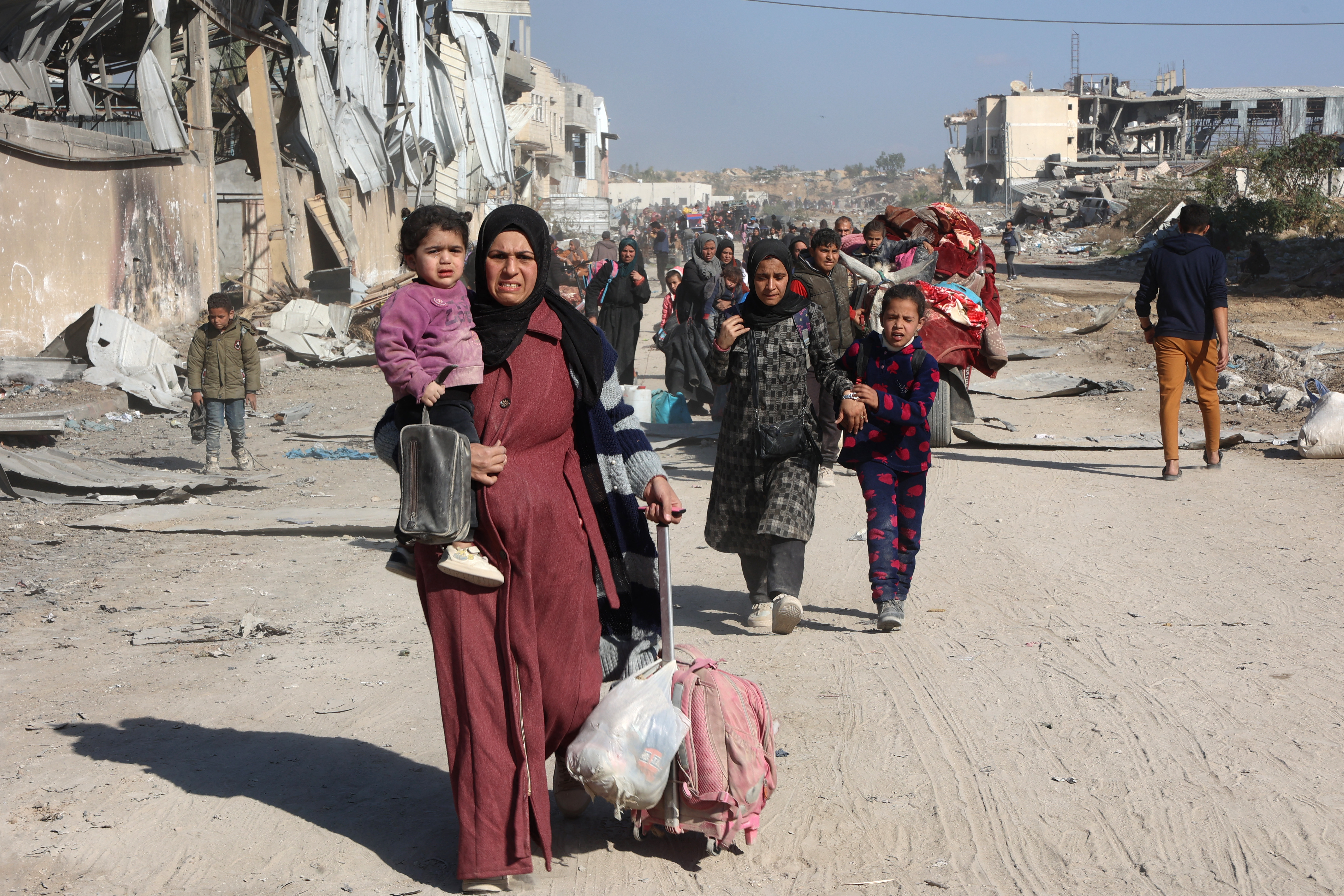In a nearly 300-page report released on Thursday, Amnesty International concluded that Israel’s actions in Gaza constitute genocide.
“Month after month, Israel has treated Palestinians in Gaza as a subhuman group unworthy of human rights and dignity, demonstrating its intent to physically destroy them,” Agnès Callamard, Secretary General of Amnesty International, said in a statement. She stressed: “Our damning findings must serve as a wake-up call to the international community: this is genocide. It must stop now.”
Amnesty is repeating its call for the UN Security Council to impose a “comprehensive arms embargo” on Israel and Hamas. It is also supporting targeted sanctions such as freezing the assets of the Israeli officials most implicated in the genocide.
Amnesty’s report, which focused on the period between October 2023 and July 2024, comes as South Africa pursues genocide charges against Israel at the International Court of Justice. The ICJ has deemed South Africa’s case to be plausible and has issued a series of legally binding provisional measures that Israel has largely ignored. The International Criminal Court has also issued arrest warrants for Israeli Prime Minister Benjamin Netanyahu and former defense minister Yoav Gallant for crimes against humanity and the use of starvation as a weapon of war.
President Joe Biden called the decision to issue arrest warrants “outrageous” in a statement. The United States has provided almost entirely unconditional military and diplomatic support to Israel throughout the war.
The report’s executive summary makes clear the scale of destruction that the United States has enabled in Gaza:
Israel’s military offensive has killed and seriously injured tens of thousands of Palestinians, including thousands of children, many of them in direct or indiscriminate attacks, often wiping out entire multigenerational families. Israel has forcibly displaced 90 percent of Gaza’s 2.2 million inhabitants, many of them multiple times, into ever-shrinking, ever-changing pockets of land that lacked basic infrastructure, forcing people to live in conditions that exposed them to a slow and calculated death. It has deliberately obstructed or denied the import and delivery of life-saving goods and humanitarian aid. It has restricted power supplies that, together with damage and destruction, led to the collapse of the water, sanitation and healthcare systems.
Widespread death and destruction are not sufficient for something to be considered genocide under international law. Actions must be committed with an “intent to destroy” the group “in whole or in part.” Amnesty determined that Israel’s actions have cleared that high bar.
To establish intent, the organization looked at both the pattern of Israel’s actions and statements made by senior government officials who have called for the destruction of Gaza—not just Hamas. The group interviewed 212 people including “Palestinian victims, survivors and witnesses of air strikes, displacement, detention, the destruction of farms, homes and agricultural land, as well as individuals who faced the impact of Israel’s restrictions on humanitarian aid.”

As I’ve written, the word genocide was created in 1941 by Raphael Lemkin, an Eastern European Jewish lawyer who fled the Nazis. Lemkin defined genocide as a process in which an oppressor group erased the “national pattern” of a victim group and then imposed its own. He was adamant that genocide was not limited to mass extermination. Other actions—such as destroying universities or withholding food—could be genocidal if intended to destroy the “essential foundations” of victim groups so that they “wither and die like plants that have suffered a blight.” The “machine gun” was the “last resort” of the genocider for Lemkin.
After the war, Lemkin succeeded in getting the international community to make genocide a crime. But in the process, Lemkin’s conception of genocide was substantially diluted by world powers that feared that their actions—whether it be Jim Crow in the United States or political purges in the Soviet Union—could one day find themselves charged with the crime.
Israel’s treatment of Palestinians almost certainly would have met Lemkin’s original definition long before October 7 of last year. (Amnesty, along with other international and Israeli human rights groups, have argued in recent years that Israel is an apartheid regime as a result of its systematic oppression of Palestinians.) Amnesty’s conclusion on Thursday reflects how human rights groups and international lawyers increasingly believe its actions in Gaza constitute genocide under the narrowed definition adopted in 1948.
In March, I asked Omer Bartov, the Samuel Pisar Professor of Holocaust and Genocide Studies at Brown University and one of the world’s leading experts on Nazi atrocities, whether he believed Israel’s actions in Gaza met the legal bar for genocide. Bartov, who was born and raised in Israel and served in the Israel Defense Forces, said he believed Israel was on the brink.
“I don’t know exactly at which point we are right now,” he said. “But we’re very close to it.” Bartov believed that Israel’s actions going forward would help determine how to properly assess the initial phases of the war.
Bartov has since concluded that Israel is engaged in genocide.
In a conversation with the journalist Peter Beinart last week, he provided a chilling account of the latest phase of Israel’s campaign in Gaza, which targets the northern area of the strip.
“Most of the population has been pushed out already, and Jabalia, the main refugee camp there, has been almost entirely destroyed,” Bartov explained. “We see that as a microcosm of a larger operation, which is clearly intended to make Gaza completely uninhabitable for the Palestinian population there. To squeeze it increasingly to the south and then to say either: The Palestinians will die there, or somebody will take them in but they will not be not be in the Gaza strip.”







